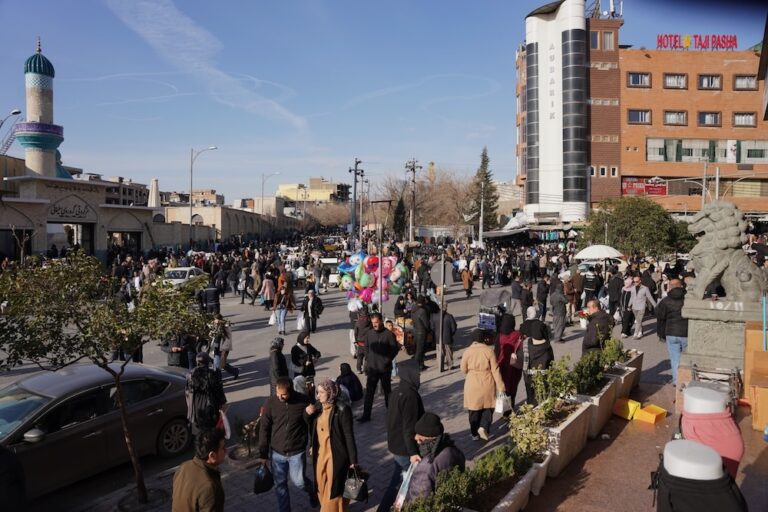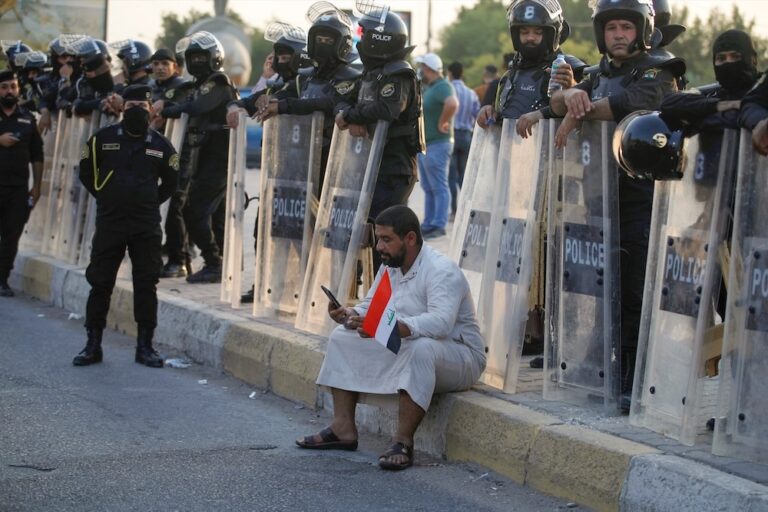(RSF/IFEX) – RSF has voiced concern over the fate of five journalists who are currently being held hostage or are reported missing in Iraq, including one Japanese national, three Czechs and a Frenchman. The Japanese journalist has been held since 8 April 2004. The organisation called on the journalists’ abductors to release them as well […]
(RSF/IFEX) – RSF has voiced concern over the fate of five journalists who are currently being held hostage or are reported missing in Iraq, including one Japanese national, three Czechs and a Frenchman. The Japanese journalist has been held since 8 April 2004.
The organisation called on the journalists’ abductors to release them as well as all other civilians who are being held against their will. RSF urged the armed forces involved in the conflict to make every effort possible to obtain their release as quickly and safely as possible. The abductions are part of a wave of kidnappings in recent days in which about 40 people from 12 different countries have been abducted.
Although primarily determined by the victims’ nationality, the abduction of journalists is having a dramatic impact on press freedom in the country, making the news media’s work conditions especially dangerous. Journalists are being forced to restrict their movement and safety has become their overriding concern.
With at least eight media workers killed since the beginning of the year, including four journalists and four assistants, Iraq is currently one of the world’s most dangerous places for journalists. Reporters in the field are comparing the current situation in Iraq to Beirut during the worst moments of the civil war that raged in Lebanon from 1975 to 1990. At the time, many foreign journalists became the target of attacks or kidnapping by various armed groups.
Whether the abductors’ demands are of a political or financial nature, such actions are unacceptable, cowardly and contrary to the most basic norms of international law, RSF said. The organisation stressed that journalists carrying out dangerous assignments in war zones are considered to be civilians under the Geneva Conventions and must be protected as such, as set out in Article 79 of Supplementary Protocol 1 of 1977.
On 11 April, Alexandre Jordanov, aged 40, of the French television news agency Capa, was reportedly kidnapped in Latifiya, 30 kilometres south of Baghdad. He was preparing a documentary for the French television station Canal + with his cameraman, Ivan Cerieix. An Iraqi guerrilla group held Cerieix for several hours before releasing him that night. Jordanov, Cerieix, an Iraqi driver and an Iraqi interpreter had been driving towards Hilla, to meet with the Polish military contingent, when they stopped their vehicle to film fighting between American soldiers and Iraqis following an attack on a supply convoy.
Also on 11 April, three Czech journalists went missing in Taji, a village north of Baghdad. Reporter Michal Kubal, aged 27, and cameraman Petr Klima, aged 40, of the public television station CT, and reporter Vit Pohanka, aged 37, of the public radio station Cro, were travelling together in a taxi bound for the Jordanian capital of Amman.
On 8 April, three Japanese civilians were abducted on the road between Amman and Baghdad. They include freelance photographer Soichiro Koriyama, aged 32, who is currently on assignment for the Tokyo-based “Asahi Weekly” (see IFEX alerts of 12 and 8 April 2004).


